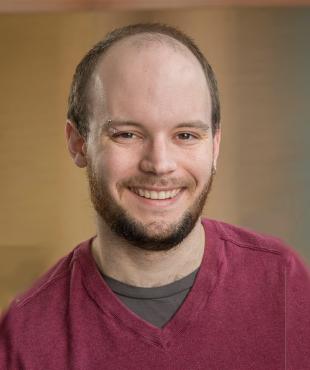
Max Beshers
Providing clinical counseling to homeless LGBTQ youth at the Broadway Youth Center
Max Beshers was part of Alida Bouris’ ten-student research team for her study, project READY (Resisting, Empowering, Advocating for Youth), which is working to answer the research question, “What are the familial and social-contextual factors associated with preventing HIV among African-American and Latino same-gender-loving young men and transgender women ages 13-19?”
To learn more about the factors that promote resilience, Project READY is surveying 150 youth about topics such as parent-adolescent communication, substance use, mental and sexual health, and their experiences with school, discrimination and the criminal justice system. Max and other members of the team set up booths at public events such as Lakeview’s Market Days in Chicago, where they pass out literature, recruit and survey research participants, and conduct rapid HIV testing. The team has also collaborated with the Night Ministry, setting up a booth in parking lots to recruit and survey participants and to disseminate HIV/STI prevention information to teens and others who may be facing homelessness.
“Alida’s research question is a cool idea as the answers will help broaden our conception of what HIV prevention looks like,” Max says. “Having access to socio-emotional supports, particularly for young people, is an important element of prevention.” Max believes that there is a great need to reach out to adolescents about HIV prevention because it is not currently on the public’s radar. “Current public perception is that HIV has become a chronic, but manageable disease, so it seems as if the problem is “under control,” Max says. “But rates are rising among certain populations, and we have to remain vigilant.” He points out that not only are young African-American and Latina/o gay men and transgender women particularly at risk, but so are other group—heterosexual African-American women face much higher risk than white women, for example. In Project READY, approximately 14 percent of the sample to date has tested positive for HIV.
Max, a clinical student, reached out to Bouris before classes started his first year because her research focus matched his clinical and career interests. In addition to recruiting for Project READY, he’s worked on focus groups and qualitative studies for other research Bouris is conducting.
Some of Max’s favorite classes have been taught by instructors such as Senior Lecturer William Borden and Lecturer Paul Holmes. But it was Bouris’ class that really made an impression on him. Says Max, “Crown Family School should teach a class that entirely focuses on what she is researching.”
Max’s first-year placement was at TPAN (Test Positive Aware Network) where he learned how to provide substance abuse and group counseling to men-who-have-sex-with-men (MSM).
Over the span of his two placements, he’s gained confidence in doing therapy. “I have a great supervisor at my second-year field placement at the Broadway Youth Center, Cullen Sprague, who is a full-time therapist at the Howard Brown Health Center in their youth program,” Max says.
Max provides clinical counseling to homeless LGTBQ youth at the Broadway Youth Center. “There are huge gaps in the literature about LGBTQ youth and especially on transgender health,” he says. “So it is exciting to have the opportunity to participate and learn first-hand how the field and the research connect.”
Bouris had also invited Max to co-author a paper after he graduated, though he planned to continue his clinical work with the adolescent population rather than follow a research career. “I’ve learned that research is a lot of work and it takes a long time to do. From the protocol, to developing instruments, to recruiting participants. This has been a real eye-opener,” Max says. “But all of this hard work is gratifying as this research is important. It will help inform those of us who are clinicians. And it’s going to save lives.”